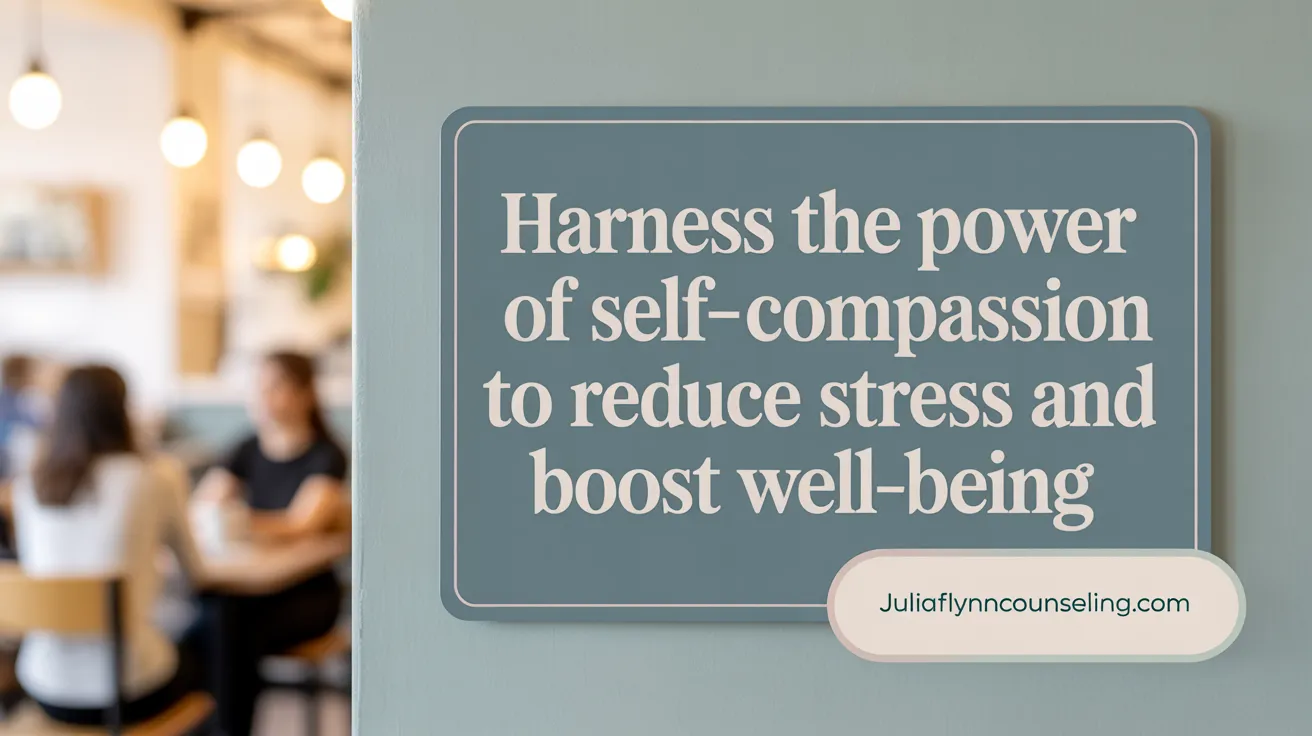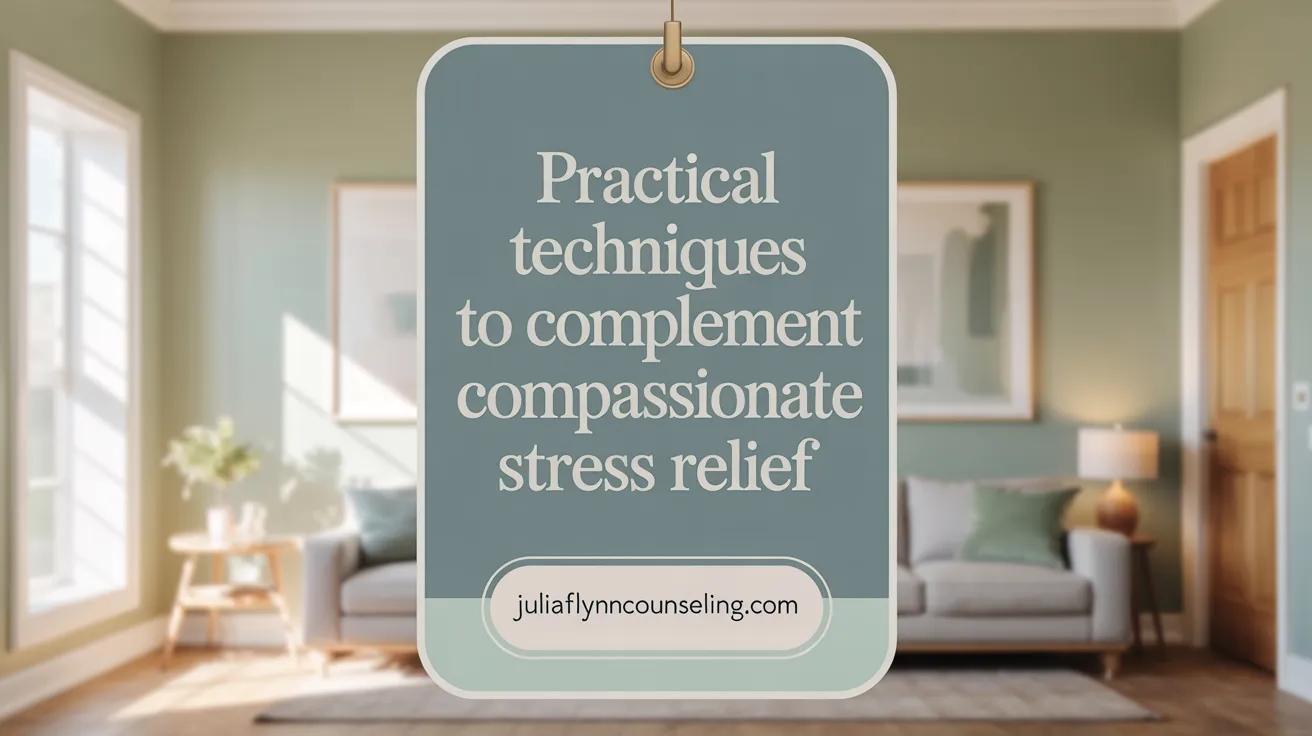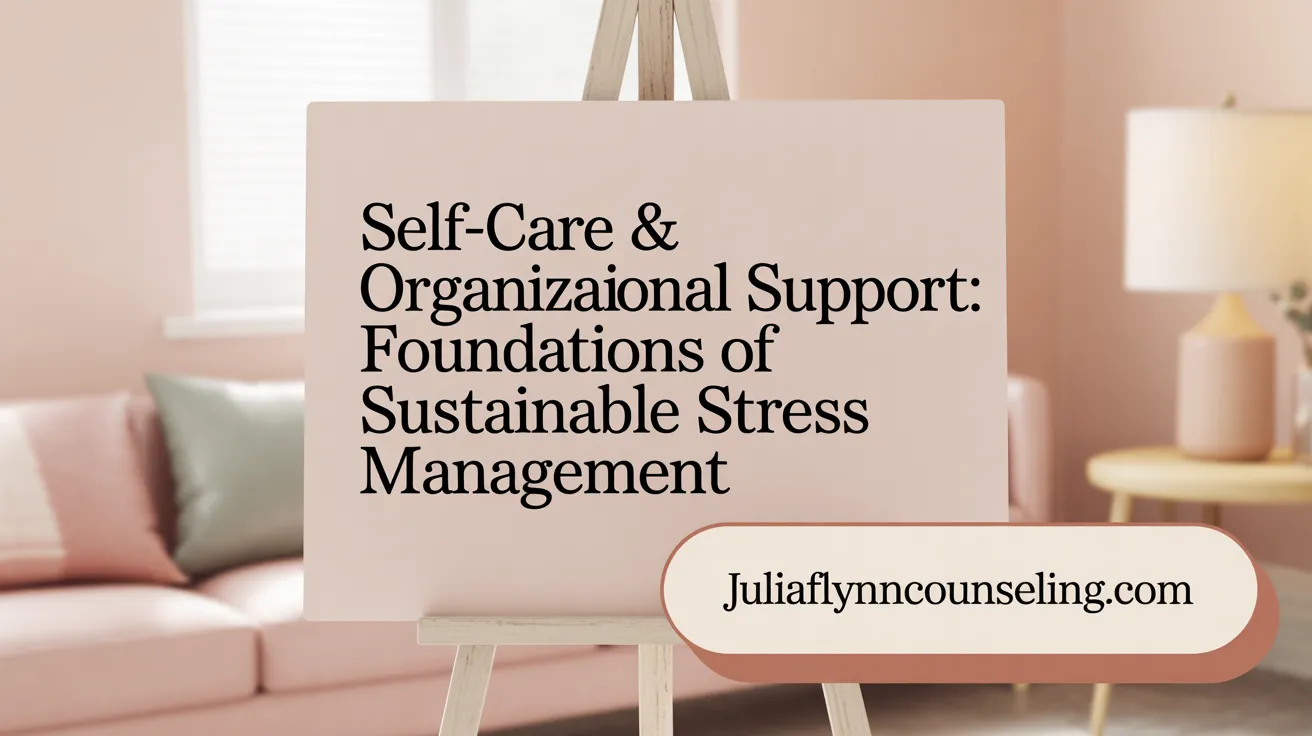Understanding the Synergy Between Compassion and Stress Management
Stress is an inevitable part of life, affecting mental, emotional, and physical well-being. In therapeutic contexts, especially within compassionate treatment frameworks, managing stress efficiently is paramount for both patients and healthcare providers. This article explores evidence-based stress reduction techniques intertwined with compassion in mental health care, highlighting how self-compassion and compassionate care transform stress management into a nurturing, healing process.
The Role of Self-Compassion in Stress Reduction

What is self-compassion and how does it aid in stress management?
Self-compassion is the practice of treating oneself with kindness during difficult times, recognizing that suffering is a shared human experience, and maintaining mindful awareness of one’s emotions without harsh judgment. This approach involves three core components: self-compassion components. When faced with stress, self-compassion helps reduce self-criticism and feelings of isolation. It enables people to reframe their experiences in a more positive light, promoting healthier coping styles such as problem-solving and seeking support rather than denial or rumination.
Psychological benefits of self-compassion
Individuals who practice self-compassion tend to exhibit lower levels of neuroticism and depression, with increased life satisfaction and stronger social connectedness. By embracing their struggles with understanding rather than judgment, they cultivate emotional resilience and reduce anxiety. This shift in mindset fosters greater acceptance and adaptive engagement with challenges, improving overall psychological well-being (Self-Compassion and Psychological Well-being).
Self-compassion’s impact on coping with stress
Research shows that higher self-compassion correlates with the use of more functional coping strategies. People are more likely to manage stress proactively, preparing for future difficulties and participating in health-promoting activities. Conversely, self-compassion is inversely related to maladaptive coping methods such as avoidance, denial, and substance misuse (Self-Compassion as a Coping Mechanism.
How does self-compassion physiologically influence stress response?
Engaging in self-soothing behaviors, like placing a gentle hand on oneself or repeating compassionate mantras, can reduce levels of stress hormones such as cortisol. These actions stimulate the vagus nerve, activating the body’s relaxation response, which lowers heart rate and promotes calmness. This physiological effect supports emotional regulation and strengthens resilience when confronted with stress (Self-Compassion and Stress Relief).
In summary, self-compassion is a multifaceted approach that benefits both the mind and body by nurturing kindness, awareness, and connection. Its practice aids stress management by promoting positive psychological states and activating calming physiological responses that enhance coping capacity (How Self-Compassion Can Help You Deal With Stress).
Mindfulness and Relaxation Techniques in Compassionate Therapy

What mindfulness and relaxation techniques are effective for stress management?
Mindfulness and relaxation techniques play a crucial role in compassionate therapy by helping individuals manage stress effectively. One notable approach is Mindfulness-Based Stress Reduction (MBSR) program, which consists of breathing meditation, body scanning, and yoga-inspired gentle exercises. These practices enhance present-moment awareness and enable people to process emotions, thoughts, and sensations more adaptively, leading to reduced stress and anxiety.
Breathing meditation and body scanning
Breathing meditation focuses on controlled, mindful breathing to calm the mind and body. Body scanning involves systematically directing attention to different parts of the body to increase awareness of physical sensations and promote relaxation. These techniques help evoke the relaxation response—a profound state of rest counteracting the stress response.
Yoga, tai chi, and qigong for stress relief
Physical mindfulness practices such as yoga, tai chi, and qigong combine gentle movement with breath control and focused attention. They have been shown to lower heart rate and blood pressure, relax muscles, and improve overall mental peace, further supporting stress management. These are considered among effective stress relief strategies and physical approaches to stress relief.
Other relaxation methods such as guided imagery and repetitive prayer
Guided imagery involves visualizing peaceful scenes or positive experiences to reduce anxiety. Repetitive prayer or mantra repetition can foster calm and emotional resilience. When practiced regularly—ideally 20 minutes or more daily—these methods reliably generate the relaxation response, contributing to holistic stress relief in compassionate care settings.
Integrating Compassionate Care Principles in Stress Management for Healthcare Professionals

What is compassionate care and why is it important in healthcare?
Compassionate care means recognizing and responding to suffering with a genuine desire to alleviate it. It involves empathy, respect, and a commitment to patient-centered communication. Beyond improving patient satisfaction and treatment adherence, it creates a supportive and trusting environment essential for quality care (Compassionate health care, Compassionate care benefits patients, Compassionate care and patient outcomes).
How does compassionate care support stress management among healthcare providers?
Providing compassionate care benefits healthcare workers by reducing burnout and depression, increasing job satisfaction, and building resilience. Compassion acts as a protective factor, helping providers manage emotional strain and maintain their well-being amidst demanding work conditions (Compassionate health care, Stress responses in healthcare providers, Managing stress for health care professionals).
What are the challenges of compassion fatigue and burnout, and how can they be addressed?
Healthcare professionals can experience compassion fatigue in healthcare professionals, characterized by emotional exhaustion and reduced ability to empathize, often caused by high workload and exposure to patients' suffering. Effective coping includes self-care, adequate rest, social support, and organizational strategies like regular breaks and recognition of staff efforts (Coping with Stress and Compassion Fatigue, Workplace Stress in Healthcare, Stress responses in healthcare providers).
How can organizational culture and leadership foster compassionate environments?
Leadership plays a critical role by promoting compassionate communication and supporting staff mental health. Institutions that cultivate compassionate cultures see improved staff satisfaction, retention, and patient outcomes. Emphasizing teamwork, self-awareness, and empathetic care helps create sustainable healthcare environments (Leadership promoting compassionate healthcare, Compassionate care benefits, Recognizing patient needs and institutional support).
| Aspect | Role in Stress Management | Outcome for Providers |
|---|---|---|
| Compassionate care | Recognizing and acting on suffering | Resilience, lower burnout, improved job satisfaction (Compassionate care benefits) |
| Compassion fatigue mitigation | Self-care, breaks, social support | Reduced emotional exhaustion, sustained empathy (Coping with Stress and Compassion Fatigue |
| Leadership and culture | Supportive policies, training, recognition | Positive workplace environment, staff well-being (Leadership promoting compassionate healthcare) |
By integrating compassionate care principles, healthcare organizations can effectively support the mental health and stress management of their providers, enhancing care quality and workforce sustainability (Compassionate care in healthcare systems.
Evidence-Based Therapeutic Approaches Emphasizing Compassion and Stress Reduction
What evidence-based therapies incorporate compassion and aid in stress reduction?
Compassion Focused Therapy (CFT) techniques is an evidence-based approach designed to reduce stress and self-criticism by fostering self-compassion. It includes techniques such as compassionate imagery, soothing rhythm breathing, and cultivating a compassionate inner voice that nurtures emotional resilience and decreases distress.
The therapeutic relationship itself plays a crucial role in stress reduction. Therapeutic relationship and stress reduction create a safe environment, strengthening trust and improving treatment outcomes by supporting clients through their emotional challenges.
Exposure with response prevention (ERP) exemplifies a compassionate, effective therapy, particularly for Obsessive-Compulsive Disorder (OCD). While ERP directly confronts distressing symptoms, it also aims to relieve suffering through structured support, helping clients regain control and reduce anxiety with compassion at the core.
Therapist empathy and compassion not only buffer stress but enhance engagement and adherence to therapy. These qualities foster connection, reduce feelings of isolation, and promote healthier stress coping strategies, demonstrating that compassion is integral to successful mental health treatment.
Practical Stress Reduction Strategies Within Compassionate Treatment Frameworks

What practical strategies complement compassionate approaches to reduce stress?
Engaging in Physical Activity for Stress Relief such as walking, yoga, or exercise plays a powerful role in stress reduction. These activities boost mood-enhancing endorphins, refocus the mind, and increase resilience.
Mindfulness and Meditation Techniques enhance present-moment awareness and help regulate emotions. Practices like breathing meditation, guided imagery, and body scans foster calm and reduce stress reactivity.
Keeping a Journal offers a useful outlet for expressing and processing emotions. Combined with Positive Self-Talk and cultivating gratitude, journaling promotes a more optimistic outlook that buffers stress effects.
Social Support is vital. Connecting with friends, family, or colleagues provides emotional assistance and distraction. Learning to set healthy Boundaries and say no helps prevent emotional overload and burnout.
Finally, incorporating Humor and Leisure Activities —such as watching comedy, engaging in hobbies, or laughter yoga— raises spirits and diminishes tension, fostering overall well-being.
Together, these practical strategies reinforce compassionate treatment frameworks by supporting emotional and physical health, thus improving stress management outcomes.
Self-Care and Organizational Support as Pillars of Sustainable Compassionate Stress Management

Why are self-care and organizational support vital in compassionate stress reduction?
Self-care is essential for both patients and healthcare providers to maintain mental and physical well-being. Activities like getting enough sleep, eating nutritiously, exercising, practicing relaxation techniques such as meditation and deep breathing, and journaling help manage stress effectively. For healthcare professionals, these practices help prevent compassion fatigue in healthcare professionals, which includes burnout and secondary traumatic stress.
Recognizing early signs of stress — such as irritability, fatigue, headaches, and difficulty concentrating — allows timely actions to avoid further decline. Compassion fatigue reduces work satisfaction and emotional connection with patients, so awareness is critical.
How do managers and healthcare institutions support stress reduction?
Organizational factors greatly influence stress levels. Managers play a pivotal role by arranging schedules that allow adequate rest, acknowledging healthcare workers’ efforts, and fostering supportive environments. Training on recognizing stress and compassion fatigue helps staff cope better.
Institutes adopting compassionate health care cultures see benefits including reduced burnout, improved team communication, and enhanced patient care quality. Leadership support and team-based care contribute to sustaining compassion throughout healthcare delivery.
What professional resources are available to aid stress management?
When stress becomes overwhelming, professional help is vital. Options include employee assistance programs, counseling services, telehealth mental health consultations, and crisis helplines. These resources provide confidential support and practical coping strategies to sustain healthcare providers' resilience.
In summary, sustainable compassionate stress management relies on individuals practicing self-care strategies for health care workers alongside organizational commitment to recognize, reduce, and address stress, ensuring well-being for caregivers and patients alike.
Embracing Compassion for Holistic Stress Reduction
Incorporating compassion—whether directed toward oneself or others—is an empowering framework that enhances stress management in mental health treatment. Self-compassion nurtures resilience and facilitates adaptive coping, while mindfulness and evidence-based therapies provide practical tools for emotional regulation. For healthcare providers, compassionate care not only benefits patients but also reduces burnout and compassion fatigue, sustaining their ability to provide quality care. Coupled with lifestyle strategies and organizational support, compassionate approaches create a holistic, sustainable pathway to reduce stress, improve well-being, and foster healing for all involved.
